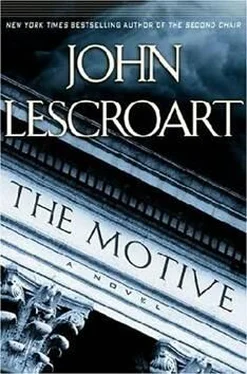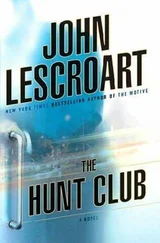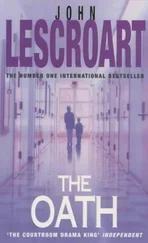In 1991, she and Philippe got married in a highly visible society wedding. This was also the year in which a party of some moderate but mostly radical Islamists called the Islamic Salvation Front, or FIS, won a round of parliamentary elections for the first time. This victory prompted Algeria's ruling party, the National Liberation Front (FLN) to outlaw the FIS, and this in turn led to the first violent confrontations between the FLN and the FIS, confrontations that within a year had grown into a full-scale civil war.
Monique and Philippe were not particularly political. True, they both came from the upper classes and socialized almost exclusively within that circle. But mostly they kept to themselves and to the strong Souliez extended family of doctors, engineers, professional people and their educated, sophisticated, well-traveled relatives. The young couple themselves were contented newlyweds doing work that they felt was important and that would go on regardless of who was in power. After Monique became pregnant, their personal world became even more insular, even as the civil war escalated throughout the country and all around them.
Idealistic and unaffiliated with any of the warring factions, Philippe volunteered when he could at both emergency rooms and makeshift clinics that treated both sides. Sometimes these weren't clinics at all, but calls in the night, wounded and dying young men at their doors.
The slaughter, meanwhile, continued unabated until the government finally took the conflict to another level. Anyone suspected of FIS sympathies would simply disappear amid rumors of mass graves and torture. The government issued weapons to previously noncombatant civilians, and this led to a further breakdown in order, with neighbors killing neighbors, with armed bands of simple thieves creating further confusion and havoc. On the rebel side, a splinter organization that called itself the Armed Islamic Group, or GIA, began a campaign of horrific retaliatory massacre, sometimes wiping out entire villages, killing tens of thousands of civilians. Favoring techniques such as assassinations, car bombings, and kidnapping-and then slitting their victims' throats-they brought a new definition of terror to the conflict.
Philippe and Monique considered leaving the country, of course. They had a baby, Jean-Paul, to protect now. The rest of the family would understand. But the rest of the family wasn't fleeing. This was their home. They and their civilized counterparts in similar predicaments believed it their duty to stay. And Philippe and Monique came to feel the same way. They would be the only hope for the country when the fighting stopped, as they believed it eventually would.
But it didn't stop in time for Philippe and Jean-Paul.
Pounding on their door in the middle of the night, a twenty-man squadron of government security forces broke into their home. Informants had told authorities that they'd seen Philippe working on the GIA wounded. He was, therefore, with the GIA. They dragged him from the house, knocking Monique unconscious with rifle butts in the street as she screamed and fought and tried to get them to stop. When she came to, Philippe was gone, the door to her house was open and nearly everything in it was destroyed. Jean-Paul's broken body lay in a corner of his bedroom with his dismantled toys and slashed stuffed animals littering the floor around him.
Here Glitsky holds up a hand. "Iget the picture." He pauses, explains. "I'm not in a good place to hear stories about dead babies right now."
Thomas, jarred out of his narrative, narrows his obsidian eyes in impatience or even anger. Then he checks himself. Glitsky suddenly gets the impression that he knows about Zachary. It's unnerving.
"Sure," Thomas says. "Noproblem." He gathers himself, picks up where he left off. After the government thugs killed her husband and her son, Monique became transformed both by her need for vengeance and by her passionate hatred for the government, and particularly its so-called security units. Within a month of the twin tragedies she'd endured, she went underground and joined one of the revolutionary brigades.
At this time, the rebels still lacked a strong organizational structure or even a cohesive political platform. They were united in seeking to overthrow the current administration and replace it with an Islamic state, but there was no central command, or even a consensus on what type of Islamic structure the country would eventually embrace if they were victorious. The typical cell consisted of a loosely confederatedgroup of between ten and twenty-five individuals. Most of these were Islamic, of course, but many Christians and even some Europeans were drawn to the cause in the way Monique had been-by the government's brutality or by simple hatred of individuals in power. Many, too, joined the rebels because they hated France, which supported the FLN and its military-dominated regime.
The details ofMonique's next couple of years were sketchy, but it was clear that she had become affiliated with one of the cells. She may or may not have actually participated in many raids and ambushes-the accounts varied-but she certainly became comfortable with a variety of weapons and took part in planning and funding operations, especially against security details such as those that had killed her family.
But as the government's ongoing campaign continued to decimate the rebels' numbers, the individual cells were forced to congeal into more cohesive and ever more secretive units. The GIA, effectively beaten as an army, had to abandon the pitched street battles that had marked the civil war stage of the conflict, although they continued to assassinate, to bomb and to kidnap. The government, for its part, waged what began as a successful torture campaign against captured prisoners who were suspected of GIA affiliation. Increasingly marginalized, the rebels countered with an effective tool to guarantee the silence of its captured operatives. If a captive talked, his or her entire family would be killed. Not just husbands and wives and children, but fathers, mothers, grandfathers and grandmothers, uncles, aunts and cousins, to the third degree.
The most celebrated of these slaughters occurred in 1997. The government arrested a nineteen-year-old boy named Antar Rachid on suspicion of taking part in the carjacking and assassination of a minor Algiers municipal official. Three days after Rachid's arrest, government security forces raided the downtown cafe out of which Rachid had operated, in the process killing three other GIA soldiers and confiscating a large cache of automatic weapons, cash and ammunition from the hidden room in the cafe's cellar. Obviously, they broke Rachid with torture and he talked.
Here Glitsky speaks again. "How many of his relatives did they kill?"
"I was getting there." The number seems to slow down even the phlegmatic Thomas. He takes a breath, tries to sound matter-of-fact. "One hundred and sixty-three. Raids in Algiers itself and in thirteen villages over the next couple of days. Gone before they knew what hit 'em. After that," Thomas says, "captured suspects stopped talking and started dying in jail."
In 1999, Algeria finally got a new civilian president, Abdelaziz Bouteflika, and he offered amnesty to rebels who hadn't been convicted of rape or murder or other heinous crimes. Along with about eighty-five percent of the rest of them, Monique returned to civilian life, moving back in with her father and mother, going back to work at the bank. But she'd proven herself a valuable organizer and strategist to the GIA, and they weren't ready to abandon her. It wasn't the kind of organization where you simply walked out-Rachid's experience, and many others similar to it, made that crystal clear. It was like the mob. It doesn't matter if you were arrested, or if you tried to leave on your own… you are never out.
Читать дальше












